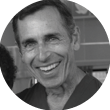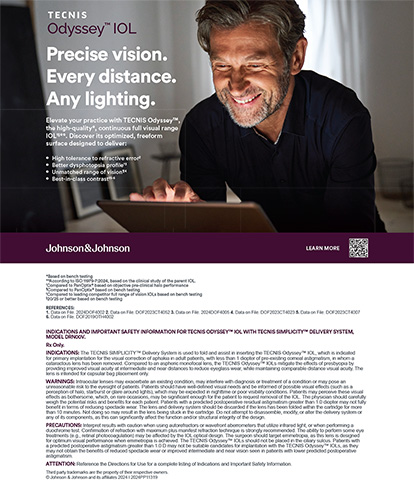


Physician burnout is a growing problem in all medical disciplines that has gained increased attention since the COVID-19 pandemic began. Humanitarian work offers one avenue for addressing the issue.
THE FAR-REACHING CONSEQUENCES OF BURNOUT
Burnout is characterized by symptoms such as exhaustion, insomnia, depersonalization, and a diminished sense of personal accomplishment. Prolonged work-related stress culminates in mental and physical fatigue, emotional detachment, and a pessimistic outlook. The Medscape Physician Burnout and Depression Report 2022 surveyed 13,000 physicians across all specialties. More than one-third of the respondents reported grappling with burnout—underscoring its increasing prevalence and significance in the medical field.1,2
The trend was evident in a recent survey of 592 ophthalmologists in which 38% reported symptoms of burnout.3 The rate was notably higher among residents, with 68% indicating burnout or depression had been an issue in their programs during the past year. Physician burnout has been correlated with multiple stress-inducing factors in medical practice, such as the pressure to see an increased number of patients per day and limited control over personal time.4
The repercussions of physician burnout extend beyond the individual to affect other health care providers and the medical system at large. Burnout can lead to decreased productivity, subpar job performance, and an increase in medical errors, thereby compromising the quality of medical care.5 Subsequent declines in patient satisfaction and patient-physician relationships may pave the way for costly malpractice lawsuits, which can impose substantial financial and emotional burdens on health care institutions and physicians.
At any given time, approximately one-third of all physicians—51% female and 36% male—are dealing with the effects of burnout. What’s particularly alarming is that this burnout spills over into every facet of a physician’s life, with a substantial 47% of all physicians rating their burnout as severe.2,6
HUMANITARIAN OUTREACH TO COMBAT BURNOUT
Medical missions provide eye care services to underserved communities both domestically and internationally (Figure). Individuals in low-income countries who are blind from cataracts often lack access to ophthalmological care. For those who manage to consult an ophthalmologist, the cost of treatment—ranging from $1,500 to $5,000—is usually prohibitive. As a result, disadvantaged individuals in low- and middle-income countries frequently go without essential eye care services.

Figure. Ophthalmic technician Loida Guajardo (left) and Dr. Jeffrey P. Rutgard (right) with a patient during an outreach trip.
Engaging in short-term humanitarian work offers ophthalmologists a unique opportunity for personal and professional growth while addressing critical gaps in eye care.7 Participating in such outreach initiatives can help combat physician burnout in seven notable ways.
No. 1: Empathy and connection. Humanitarian work allows ophthalmologists to engage with patients from diverse cultural and socioeconomic backgrounds, thereby enhancing providers’ empathy and doctor-patient relationships. These enriching experiences can ignite a newfound sense of compassion and positively influence their medical practice upon return to their home countries.
No. 2: Professional growth and resilience. Humanitarian outreach, especially in low-resource settings, often presents challenging scenarios that require innovative solutions. This experience can sharpen an ophthalmologist’s skills and resilience, better preparing them for challenging surgical cases and stress management in their home practice.
No. 3: Reduced administrative burdens. The streamlined administrative processes typical of humanitarian work allow physicians to focus on patient care. The break from paperwork and regulatory constraints can be invigorating.
No. 4: Collaborative environment. Humanitarian missions foster collaboration between health care professionals from different specialties and backgrounds. Not only can this team-oriented approach be an enriching experience, but it can also counter the isolation physicians often feel in their daily practice.
No. 5: Renewed sense of purpose. Witnessing the transformative impact of their work in underserved populations can rekindle ophthalmologists’ passion for their profession. The gratitude expressed by patients, families, and local health care providers can be rewarding and rejuvenating.
No. 6: Enhanced patient bonding. Upon returning from missions, ophthalmologists may find that their patients are keen to hear about their experiences, leading to more in-depth and meaningful interactions. This can strengthen the doctor-patient relationship and serve as a testament to the physician’s commitment to service.
No. 7: Lasting benefits. Anecdotal evidence suggests that the positive effects of participating in short-term medical missions projects extend beyond the duration of the trip itself. Such missions have been shown to reduce burnout for up to 6 months,7 affirming the long-lasting impact of humanitarian work.
MAKING OUTREACH ACCESSIBLE: A RESOURCE GUIDE
Residents and practicing ophthalmologists who initially express an interest in humanitarian outreach often face logistical and financial obstacles. Their initial aspirations frequently remain unrealized as a result. This becomes a lost opportunity for personal and professional growth as well as increasing resilience. Our objective is to equip both emerging and established ophthalmologists with the resources they need to actualize their interest in humanitarian work and integrate it into their professional lives.
Following is a curated list of resources aimed at facilitating ophthalmologists’ involvement in humanitarian outreach initiatives:
- AAO Global Ophthalmology Guide. A comprehensive guide for those interested in international ophthalmic service
- AAO Global Directory of Training Opportunities. A list of training programs across the globe
- Connecting Young Ophthalmologists With Resources, Training, Careers, and Opportunities in Global Ophthalmology. A specialized platform for young professionals
- EyeCare America. A volunteer service offering free eye care
- Hawaiian Eye Foundation - Project Vision Hawaii MSICS Training. A program specializing in manual small-incision cataract surgery (MSICS) training opportunities for third-year residents and fellows
- Himalayan Cataract Project. A project dedicated to eradicating preventable blindness
- iSight Missions MSICS Training. Offers MSICS training for practitioners
- Orbis International. Provides access to quality eye care worldwide
- Operation Sight. A charitable program under the ASCRS
- SEE International. Focuses on global vision care
- SEE International MSICS Training. Specialized training in MSICS
- Seva Foundation: A foundation committed to transforming lives by restoring sight
- Vision Outreach International/Global Sight Alliance MSICS Training. An MSICS training avenue
FELLOWSHIP OPPORTUNITIES
For residents interested in additional training and exposure to global ophthalmology, several 1-year fellowship opportunities are available, including the following:
- Dean McGee Eye Institute Global Eye Care Fellowship, University of Oklahoma, Oklahoma City
- Emory Eye Center Global Ophthalmology Fellowship, Emory University, Atlanta
- Illinois Eye and Ear Infirmary Global Ophthalmology Fellowship, University of Illinois, Chicago
- Jerome Jacobson International Program at the Kellogg Eye Center, University of Michigan, Ann Arbor
- Moran Eye Center International Ophthalmology Fellowship, University of Utah, Salt Lake City
- Seva Foundation, Berkeley, California
- Stanford University, Stanford, California
- Wills Eye Center for Academic Global Ophthalmology Fellowship, Wills Eye Hospital, Philadelphia
By leveraging these resources and fellowship opportunities, ophthalmologists can overcome obstacles and successfully integrate humanitarian outreach into their careers.
CONCLUSION
Participating in humanitarian medical missions offers many benefits, from enhancing empathy and professional skills to reducing administrative burdens and burnout. Humanitarian outreach projects not only serve disadvantaged communities but also contribute to the physicians’ personal and professional development.
1. Baggett SM, Martin KL. Medscape Ophthalmologist Lifestyle, Happiness, & Burnout Report 2022. Medscape. February 18, 2022. Accessed October 6, 2023. https://www.medscape.com/slideshow/2022-lifestyle-ophthalmologist-6014777?icd=login_success_email_match_norm
2. De Hert S. Burnout in healthcare workers: Prevalence, impact and preventative strategies. Local Reg Anesth. 2020a;13:171-183.
3. Coombs PG, Feldman BH, Lauer AK, Paul Chan RV, Sun G. Global health training in ophthalmology residency programs. J Surg Educ. 2015;72(4):e52-e59.
4. Sedhom JA, Patnaik JL, McCourt EA, et al. Physician burnout in ophthalmology: U.S. survey. J Cataract Refract Surg. 2022;48(6):723-729.
5. Tran EM, Scott IU, Clark MA, Greenberg PB. Resident wellness in US ophthalmic graduate medical education. JAMA Ophthalmol. 2018;136(6):695.
6. Kane L. ‘Death by 1000 cuts’: Medscape National Physician Burnout & Suicide Report 2021. Medscape. January 22, 2021. Accessed October 6, 2023. https://www.medscape.com/slideshow/2021-lifestyle-burnout-6013456
7. Campbell C, Campbell D, Krier D, Kuehlthau R, Hilmes T, Stromberger M. Reduction in burnout may be a benefit for short-term medical mission volunteers. Ment Health Relig Cult. 2009;12(7):627-637.




